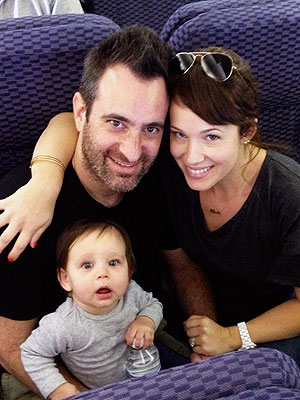ALGIERS/IN AMENAS, Algeria (Reuters) - More than 20 foreigners were captive or missing inside a desert gas plant on Saturday, nearly two days after the Algerian army launched an assault to free them that saw many hostages killed.
The standoff between the army and al Qaeda-linked gunmen - one of the biggest international hostage crises in decades - entered its fourth day, having thrust Saharan militancy to the top of the global agenda.
The number and fate of victims has yet to be confirmed, with the Algerian government keeping officials from Western countries far from the site where their countrymen were in peril.
Reports put the number of hostages killed at between 12 to 30, with possibly dozens of foreigners still unaccounted for - among them Norwegians, Japanese, Britons, Americans and others.
The U.S. State Department said on Friday one American, Frederick Buttaccio, had died but gave no further details.
On Saturday, the Algerian military was holding the vast residential barracks at the In Amenas gas processing plant, while gunmen were holed up in the industrial plant itself with an undisclosed number of hostages, making it difficult for Algerian special forces to intervene.
The army is surrounding the plant, and helicopters are monitoring the area, Algerian state radio said, quoting a reporter in the city of In Amenas.
Scores of Westerners and hundreds of Algerian workers were inside the heavily fortified compound when it was seized before dawn on Wednesday by Islamist fighters who said they wanted a halt to a French military operation in neighboring Mali.
Hundreds escaped on Thursday when the army launched an operation, but many hostages were killed in the assault. Algerian forces destroyed four trucks holding hostages, according to the family of a Northern Irish engineer who escaped from a fifth truck and survived.
Leaders of Britain, Japan and other countries have expressed frustration that the assault was ordered without consultation and officials have grumbled at the lack of information. Many countries also withheld details about their missing citizens to avoid releasing information that might aid the captors.
An Algerian security source said 30 hostages, including at least seven Westerners, had been killed during Thursday's assault, along with at least 18 of their captors. Eight of the dead hostages were Algerian, with the nationalities of the rest of the dead still unclear, he said.
Algeria's state news agency APS put the total number of dead hostages at 12, including both foreigners and locals.
The base was home to foreign workers from Britain's BP, Norway's Statoil and Japanese engineering firm JGC Corp and others.
Norway says eight Norwegians are still missing. JGC said it was missing 10 staff. Britain and the United States have said they have citizens unaccounted for but have not said how many.
The Algerian security source said 100 foreigners had been freed but 32 were still unaccounted for.
"We must be prepared for bad news this weekend but we still have hope," Norwegian Prime Minister Jens Stoltenberg said.
A U.S. official said on Friday a U.S. flight carrying wounded people from many countries had left Algeria, without giving further details.
The attack has plunged international capitals into crisis mode and is a serious escalation of unrest in northwestern Africa, where French forces have been in Mali since last week fighting an Islamist takeover of Timbuktu and other towns.
"We are still dealing with a fluid and dangerous situation where a part of the terrorist threat has been eliminated in one part of the site, but there still remains a threat in another part," British Prime Minister David Cameron told his parliament.
Two Japanese, two Britons and a French national were among the seven foreigners confirmed dead in the army's storming, the Algerian security source told Reuters. One British citizen was killed when the gunmen seized the hostages on Wednesday.
"(The army) is still trying to achieve a ‘peaceful outcome' before neutralizing the terrorist group that is holed up in the (facility) and freeing a group of hostages that is still being held," Algeria's state news agency said on Friday, quoting a security source.
MULTINATIONAL INSURGENCY
Algerian commanders said they moved in on Thursday about 30 hours after the siege began, because the gunmen had demanded to be allowed to take their captives abroad.
A French hostage employed by a French catering company said he had hidden in his room for 40 hours under the bed before he was rescued by Algerian troops, relying on Algerian employees to smuggle him food with a password.
"I put boards up pretty much all round," Alexandre Berceaux told Europe 1 radio. "I didn't know how long I was going to stay there ... I was afraid. I could see myself already ending up in a pine box."
The captors said their attack was a response to the French military offensive in neighboring Mali. However, some U.S. and European officials say the elaborate raid probably required too much planning to have been organized from scratch in the single week since France first launched its strikes.
Paris says the incident proves its decision to fight Islamists in neighboring Mali was necessary.
Security in the half-dozen countries around the Sahara desert has long been a preoccupation of the West. Smugglers and militants have earned millions in ransom from kidnappings.
The most powerful Islamist groups operating in the Sahara were severely weakened by Algeria's secularist military in a civil war in the 1990s. But in the past two years the regional wing of Al Qaeda gained fighters and arms as a result of the civil war in Libya, when arsenals were looted from Muammar Gaddafi's army.
Al Qaeda-linked fighters, many with roots in Algeria and Libya, took control of northern Mali last year, prompting the French intervention in that poor African former colony.
The apparent ease with which the fighters swooped in from the dunes to take control of an important energy facility, which produces some 10 percent of the natural gas on which Algeria depends for its export income, has raised questions over the value of outwardly tough Algerian security measures.
Algerian officials said the attackers may have had inside help from among the hundreds of Algerians employed at the site.
U.S. Defense Secretary Leon Panetta said those responsible would be hunted down: "Terrorists should be on notice that they will find no sanctuary, no refuge, not in Algeria, not in North Africa, not anywhere. ... Those who would wantonly attack our country and our people will have no place to hide."
(Additional reporting by Ali Abdelatti in Cairo, Eamonn Mallie in Belfast, Gwladys Fouche in Oslo, Mohammed Abbas in London, Padraic Halpin and Conor Humphries in Dublin, Andrew Quinn and David Alexander in Washington; Editing by Giles Elgood)















